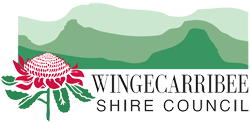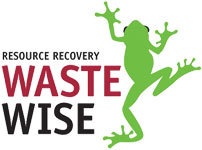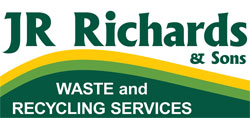| Item Title | Bin | ||
|---|---|---|---|
| Aerosol Cans | 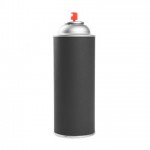 |  | More Information
Aerosol CansEmpty aerosol cans can be recycled. Simply remove the plastic lid section and place in the yellow lidded bin. As they can potentially cause a safety risk aerosol cans must be completely empty before they can be placed in the recycling bin. |
| Aluminium Cans |  |  | More Information
Aluminium CansEmpty Aluminium Cans are recyclable and can be placed directly into your yellow lidded recycling bin. Aluminium can be recycled infinitely without any loss of quality. More importantly recycling aluminium saves 95% of the energy it would take to make a can from scratch using bauxite. In fact every single can recycled saves enough electricity to power a TV for about 3 hours! So ensure that you always place aluminium cans into the recycling bin and remember if you are out and about and there are no public recycling bins, collect your cans and take them home to recycle. |
| Aluminium Foil (Clean) | 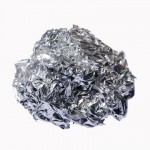 |  | More Information
Aluminium Foil (Clean)Clean aluminium foil is recyclable and can be placed directly into your yellow lidded recycling bin. Aluminium products can be recycled infinitely without any loss of quality. More importantly recycling aluminium products saves 95% of the energy it would take to make the same product from scratch using bauxite. Aluminium Foil is also a great alternative to plastic wraps for use in the kitchen. |
| Aluminium Foil (Soiled) |  |  | More Information
Aluminium Foil - SoiledAluminium foil is a recyclable product, unfortunately if it is contaminated by large amounts of food waste then it cannot go through the recycling plant. If aluminium foil is contaminated simply place it in your red lidded general waste bin. |
| Aluminium Foil Trays (Clean) | 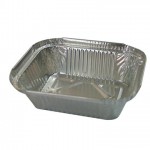 |  | More Information
Aluminium Foil Trays (Clean)Clean aluminium foil trays are recyclable and can be placed directly into your yellow lidded recycling bin. Aluminium products can be recycled infinitely without any loss of quality. More importantly recycling aluminium products saves 95% of the energy it would take to make the same product from scratch using bauxite. |
| Aluminium Foil Trays (Soiled) | 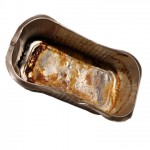 |  | More Information
Soiled Aluminium Foil TraysAluminium foil trays are a recyclable product, unfortunately if they are contaminated by large amounts of food waste then they cannot go through the recycling plant. If aluminium foil trays are contaminated simply place them in your red lidded general waste bin. |
| Animal Droppings | 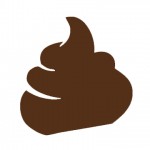 |  | More Information
Animal DroppingsAll animal droppings should be placed in the red lidded general waste bin. |
| Asbestos | 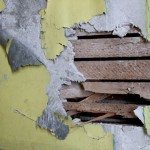 | 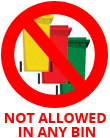 | More Information
Disposal of Asbestos MaterialsAsbestos is a hazardous waste and must be disposed of correctly at a licensed site. Asbestos fibres are hazardous when inhaled and can be released into the air when asbestos products are incorrectly handled, stored or transported for disposal. It is important to ensure that asbestos waste has been wetted and sealed in heavy-duty plastic prior to transportation. Asbestos materials are described as either ‘bonded’ or ‘friable’. Both types of material can be disposed of at specialised sites in the Midcoast area, however there are different requirements for these products. Bonded asbestos material means any material (other than friable asbestos material) that contains asbestos. Bonded asbestos cannot be crumbled, pulverised or reduced to a powder by hand pressure when dry. Common uses for bonded asbestos in buildings include flat (fibro) corrugated or compressed asbestos cement sheets, water, drainage / flue pipes and floor tiles. If fire, hail or water blasting damages bonded asbestos, it may become friable asbestos material. Friable asbestos material is any material that contains asbestos and is in the form of a powder or can be crumbled, pulverised or reduced to powder by hand pressure when dry. Friable asbestos was not commonly used in the home, it was mainly used in industrial applications. Friable asbestos should only be removed by a specialised asbestos removal contractor with a friable asbestos licence. Licenced contractors can be found in the Yellow Pages under Asbestos Removal and/or Treatment. Residents within the Wingecarribee Shire can dispose of asbestos at the Resource Recovery Centre, however they must ensure that they follow all guidelines listed below. General Guidelines: Any product suspected of being asbestos will be treated as asbestos unless the customer can provide proof that it is not asbestos. This includes fibreboard or fibrous cement. Proof can be in the form of a Hygienists Report, labelling on the product, or supplier’s documentation for that product. Dropping Asbestos at the RRC: Asbestos can only be deposited at the RRC under the following conditions: 1. The presence of asbestos must be disclosed at the gatehouse on entry 2. Asbestos must be presented as either: a. Packages (wrapped in plastic)
|
| Batteries (Household) | 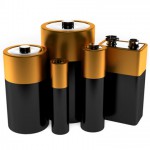 |  | More Information
Batteries (Household)Batteries are a hazardous waste and need to be disposed of correctly, it is best that they not be placed in household bins if it can be avoided. There are a wide range of battery types all of which contain dangerous chemicals including cadmium, mercury, lead, magnesium and zinc. If sent to landfill these materials can leak and contaminate soil and groundwater. Batteries can be dropped off at the Resource Recovery Centre, for more information on the Centre including location and opening hours click here. Planet Ark and Aldi supermarkets have also recently joined together to start a household battery recycling program. Residents can drop off household batteries at any Australian ALDI store free of charge. For more information on the program visit their website. |
| Batteries (Vehicle) | 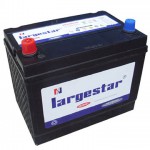 |  | More Information
Batteries (Vehicle)Used car batteries, as well as other used lead-acid batteries are hazardous waste and should be disposed of appropriately. |
| Beer Bottles | 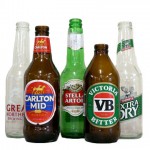 |  | More Information
Beer BottlesEmpty beer bottles can be placed directly into the yellow lidded recycling bin. Glass bottles and jars can be recycled via your regular kerbside collection. Other types of glass including drinking glasses, ceramics, plate glass and pyrex cannot be placed in your yellow recycling bin and should instead be placed in your red general waste bin. Preparing glass bottles and jars for recycling:
|
| Bones (Food Waste) | 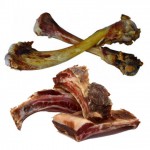 |  | More Information
Bones (Food Waste)Bones and other food waste should be placed directly into your red general waste bin. |
| Books | 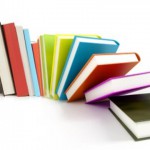 |  | More Information
BooksBooks can be placed in your yellow lidded recycling bin. If books are in good condition they can also be donated to local charities and service organisations. |
| Bottles (Glass) | 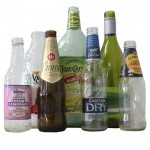 |  | More Information
Glass BottlesGlass bottles and jars can be placed directly into the yellow lidded recycling bin. While Glass bottles and jars can be recycled in your kerbside collection other types of glass including drinking glasses, ceramics, plate glass and pyrex cannot be recycled and should instead be placed in your red general waste bin. Preparing glass bottles and jars for recycling:
|
| Bottles (Plastic) | 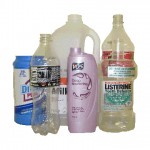 |  | More Information
Plastic BottlesRigid plastic bottles can be placed directly into the yellow lidded recycling bin. Plastic Bottle LidsLids from plastic bottles should be removed and placed in the general waste bin. Lids should be removed for several reasons:
|
| Boxes (Cardboard) | 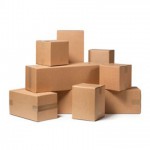 |  | More Information
Cardboard BoxesCardboard boxes can be placed directly into the yellow lidded recycling bin. It is best to ensure that they are collapsed down so that they do not take up excessive room and cannot be caught in machinery at the recycling facility. Waxed Cardboard, like those used for fruit, cannot be recycled. |
| Branches | 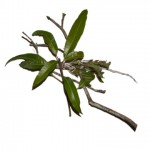 |  | More Information
Branches and OffcutsSmall branches (up to 15cm in diameter) can be placed into your green lidded garden organics bin. |
| Bread (Food Waste) | 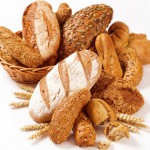 |  | More Information
Food WasteBread and other food waste should be placed directly into your red general waste bin. Food Waste can also be composted at home using a compost bin or worm farm. |
| Bubble Wrap | 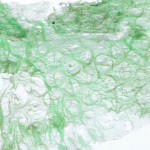 |  | More Information
Bubble WrapBubble wrap should be placed directly into your red lidded waste bin. Placing soft plastics such as plastic bags and wrap into the recycling bin can cause issues in the Materials Recovery Facility as they wrap around machinery and cause blockages. |
| Building Materials | 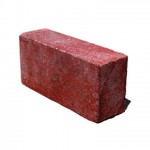 |  | More Information
Building MaterialsBuilding materials can often be reused so it is important to take them to the correct facility. They can be returned to the Resource Recovery Centre, for more information on the Centre including location and opening hours click here. Also for additional information on certain materials or to look for other drop off points visit http://businessrecycling.com.au/. |
| Cans (Aluminium & Steel) | 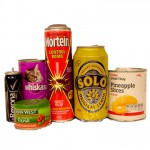 |  | More Information
Aluminium and Steel CansEmpty Aluminium and Steel cans are recyclable and can be placed directly into your yellow lidded recycling bin. Aluminium can be recycled infinitely without any loss of quality. More importantly recycling aluminium saves 95% of the energy it would take to make a can from scratch while recycling steel cans save 75% of the energy. So ensure that you always place aluminium and steel cans into the recycling bin and remember if you are out and about and there are no public recycling bins, collect your cans and take them home to recycle. |
| Car/Auto Parts | 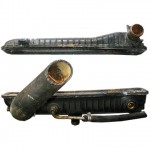 |  | More Information
Car PartsCar and auto parts should never be placed in any domestic (kerbside) bins. Cars are composed of many useful parts that can reused. Buying and selling second hand car parts reduces the need for new parts to be manufactured and prevents unwanted car bodies from becoming obsolete and valuable resources going to waste. They can be returned to the Resource Recovery Centre. For more information on the Centre including location and opening hours click here. Many scrap metal merchants and mechanics will also take car parts. For more information on other locations where car parts can be disposed of visit http://businessrecycling.com.au/. |
| Cardboard |  |  | More Information
CardboardCardboard can be placed directly into the yellow lidded recycling bin. It is best to ensure that it is collapsed down so that it does not take up excessive room and cannot be caught in machinery at the recycling facility. |
| Cardboard (Waxed) | 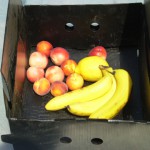 |  | More Information
Waxed CardboardWaxed cardboard boxes are often used for transporting fresh produce. Because of the wax coating they are unsuitable for recycling through the yellow bin system. Waxed cardboard should be placed in the red general waste bin. Alternatively if you have a compost bin at home it can also be composted. |
| Cards | 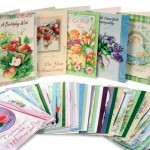 |  | More Information
Greeting CardsGift cards made of paper or cardboard materials can be disposed of in the yellow lidded recycle bin. |
| Carpet & Underlay | 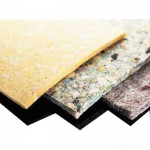 |  | More Information
Carpet and Underlay ProductsCarpet, underlay and other building materials should never be placed in any domestic (kerbside) bins. These items can be returned to the Resource Recovery Centre, for more information on the Centre including location and opening hours click here. |
| Cartridges (Printer) |  |  | More Information
Printer CartidgesPrinter cartridges should not be placed into any of your domestic (kerbside) bins. Printer cartridges contain a variety of chemicals which can cause contamination if sent to landfill. They also contain valuable materials such as metals, plastics and inks that can be recovered for reuse. Household quantities of cartridges can be retuned as part of the 'Cartridges 4 Planet Ark' program. To find your closest drop of point visit http://cartridges.planetark.org/. |
| Cassette Tapes |  |  | More Information
Cassette and VHS TapesCassette and VHS tapes should be disposed of in your red general waste bin. While these types of tapes contain a plastic casing, placing them in the recycling bin can cause issues at the Materials Recovery Facility as the tape inside can become wrapped around machinery. |
| Cellophane |  |  | More Information
CellophaneCellophane should be placed directly into your red lidded waste bin. Soft plastics such as cellophane can often have a plastic identification code on them which closely resembles the recycling symbol; however they cannot be recycled through the yellow lidded bin in this area regardless of the symbol. This is because recycling soft plastics require specialised equipment that is not available in this region. Placing soft plastics such as plastic bags and wrap into the recycling bin can also cause issues in the Materials Recovery Facility as they wrap around machinery and cause blockages. |
| Ceramics | 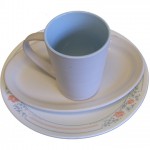 |  | More Information
Ceramic ProductsCeramic products are not recyclable and need to be placed into your red lidded general waste bin. Alternatively if ceramic products are not broken they can be donated to local charities. |
| Cereal Box Linings | 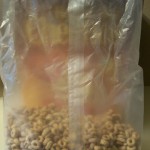 |  | More Information
Cereal Box LiningsThe plastic lining inside cereal boxes should be placed directly into your red lidded general waste bin. Placing soft plastics such as plastic bags and wrap into the recycling bin can also cause issues in the Materials Recovery Facility as they wrap around machinery and cause blockages. |
| Cereal Boxes | 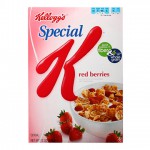 |  | More Information
Cereal BoxesCardboard cereal boxes can be placed directly into the yellow lidded recycling bin. It is best to ensure that they are collapsed down so that they do not take up excessive room and cannot be caught in machinery at the recycling facility. |
| Chemicals & Chemical Drums |  |  | More Information
Hazardous Chemicals and Storage ContainersChemicals and chemical drums are considered hazardous waste and can cause danger if they are placed in any of the domestic (kerbside) bins. These and other wastes are accepted at the Chemical CleanOut held once a year at Council's Works Depot, normally in April. For more information or advice regarding chemicals and problem wastes, please call the EPA Environment Line on 131 555 or visit www.epa.nsw.gov.au. Some agricultural and veterinary chemicals may be eligible for ChemClear. Call 1800 008 182 or visit www.chemclear.com.au for details. |
| Cigarette Butts | 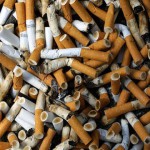 |  | More Information
Cigarette ButtsCigarette butts contain hazardous chemicals such as cadmium, arsenic and lead so they need to be disposed of correctly. Cigarette butts should be placed in the red general waste bin. Butts should never be littered as they can cause damage to the local environment. |
| Cling Wrap | 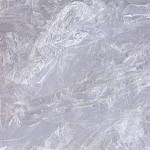 |  | More Information
Cling WrapCling Wrap should be placed directly into your red lidded general waste bin. Placing soft plastics such as plastic bags and wrap into the recycling bin can also cause issues in the Materials Recovery Facility as they wrap around machinery and cause blockages. |
| Clothing/Shoes (Damaged) |  |  | More Information
Damaged Clothing and ShoesDamaged clothing and shoes can be disposed of in the red general waste bin. |
| Clothing/Shoes (Wearable) | 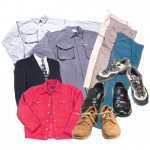 |  | More Information
Clothing and ShoesClothing and shoes which are still in wearable condition can be donated to local charities. |
| Computers & E-Waste | 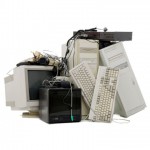 |  | More Information
Electronic WasteComputers and E-waste should not be placed in domestic (kerbside) bins. Computers and other electronic waste is Australia’s fastest growing form of waste. Computers, televisions, mobile phones and other forms of e-waste contain both toxic/hazardous materials as well as non-renewable resources such as tin, gold, nickel, zinc and copper. It is therefore important that they are disposed of correctly so that valuable resources are not lost. Under the national television and computer recycling scheme every company that makes or imports computers into Australia is required to pay for the end of life recycling of these products. As part of this scheme you can drop off computers at the Resource Recovery Centre, however you must ensure you follow the below guidelines. Dropping eWaste at the RRC: 1. Free Disposal – Conditions: Domestic quantities only – limit 5 major items. More than 5 items require prior approval by RRC management. Items able to be dropped off for free include:
|
| Concrete | 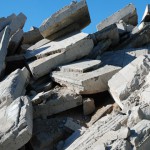 |  | More Information
Building MaterialsConcrete and other building materials can often be reused so it is important to take them to the correct facility. They can be returned to the Resource Recovery Centre, for more information on the Centre including location and opening hours click here. Also for further information on disposing of other building materials or to look for other drop off points visit http://businessrecycling.com.au/ |
| Crockery | 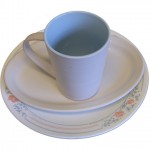 |  | More Information
CrockeryAll crockery products should be placed in the red lidded general waste bin. Crockery products are not recyclable. However unbroken crockery products can be donated to local charities or taken to the tip shop for resale. |
| Cutlery (Metal) | 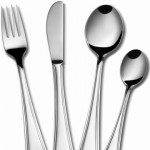 |  | More Information
Metal Cutlery & UtensilsMetal cutlery products should be placed in the red lidded general waste bin. Metal cutlery products are not recyclable as they have the possibility of causing damage to the recycling equipment at the Materials Recovery Facility. However undamaged cutlery products can be donated to local charities or taken to the tip shop for resale. |
| Cutlery (Plastic) | 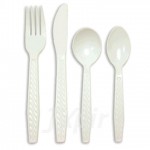 |  | More Information
Plastic CutleryPlastic cutlery products should be placed in the red lidded general waste bin. Plastic cutlery is not recyclable as they are oddly shaped and often too small to recover with current technologies. |
| Egg Cartons (Cardboard) | 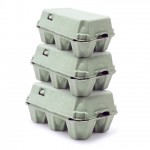 |  | More Information
Egg CartonsEgg cartons, like other cardboard products can be placed directly into the yellow lidded recycling bin. |
| Electrical Appliances | 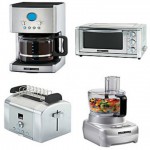 |  | More Information
Electrical AppliancesMany electrical appliances can contain hazardous or toxic materials as well as non-renewable resources. Therefore electrical appliances should be disposed of correctly by being dropped off at the Resource Recovery Centre, for more information on the Centre including location and opening hours click here. |
| Envelopes | 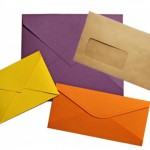 |  | More Information
EnvelopesEnvelopes can be placed directly into the yellow lidded recycling bin. This includes envelopes with the clear window on the front. |
| Fluorescent Tubes/Globes | 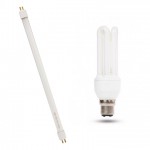 |  | More Information
Fluorescent Light GlobesCompact fluorescent tubes and globes (CFLs) contain mercury and should be disposed of correctly. Globes cannot be recycled through the yellow bin system, however by dropping them of at the Resource Recovery Centre they can be recycled through other methods. For more information on the centre click here. If you are unable to visit the RRC then CFLs can be placed in the red lidded waste bin as a last resort, but only after wrapping in paper to avoid breakages.Cleaning up broken CFL light bulbs containing mercuryThe short-term nature of the potential exposure to mercury (particularly after effective clean-up of broken CFL material) does not constitute a significant health risk to exposed adults, pregnant women or children. By following these instructions for clean-up and disposal as a cautionary approach, it will help to further reduce any risks:
|
| Foam Boxes | 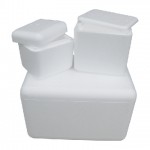 |  | More Information
Bulky PolystyreneMost bulky polystyrene (officially called Expanded Polystyrene) used for packaging or fruit boxes can be bought into Council’s Resource Recovery Centre for free. It must be clean, not waxed and all sticky tape must be removed. The polystyrene is compressed on-site and sold for use in new items such as outdoor furniture. For more information about the centre including location and opening hours visit our Resource Recovery Centre page. |
| Foam Meat Trays |  | More Information
Polystyrene Foam Meat TraysFoam meat trays can be recycled through the yellow bin system. Other forms of Polystyrene cannot be recycled through the yellow bin system. Bulky polystyrene (officially called Expanded Polystyrene) used for packaging or fruit boxes can be bought into Council’s Resource Recovery Centre for free. It must be clean, not waxed and all sticky tape must be removed. The polystyrene is compressed on-site and sold for use in new items such as outdoor furniture. For more information about the centre including location and opening hours visit our Resource Recovery Centre page. | |
| Food Waste | 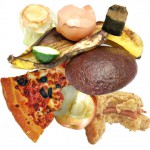 |  | More Information
Food WasteFood scraps and waste can be disposed of in the red lidded general waste bin. Alternatively you could use a home compost system or worm farm to deal with food waste. The average NSW household throws out 315kg of food waste per year. This equates to about 38% of your kerbside garbage bin and costs about $1036 in wasted food. When wasted food is thrown away and breaks down in landfill it generates methane, a major greenhouse gas and contributor to climate change. The NSW government has started the ‘Love Food, Hate Waste’ program which provides information on food waste as well as hints and tips for buying and storing food to prevent waste. For more information visit www.lovefoodhatewaste.nsw.gov.au. |
| Fruit and Vegetable Scraps |  |  | More Information
Food WasteFood scraps and other food waste can be disposed of in the red lidded general waste bin. Alternatively you could use a home compost system or worm farm to deal with food waste. The average NSW household throws out 315kg of food waste per year. This equates to about 38% of your kerbside garbage bin and costs about $1036 in wasted food. When wasted food is thrown away and breaks down in landfill it generates methane, a major greenhouse gas and contributor to climate change. The NSW government has started the ‘Love Food, Hate Waste’ program which provides information on food waste as well as hints and tips for buying and storing food to prevent waste. For more information visit www.lovefoodhatewaste.nsw.gov.au. |
| Furniture |  |  | More Information
FurnitureFurniture can be donated to local charities or taken to the Resource Recovery Centre. For more information on the Centre including location and opening hours click here. |
| Garden Hoses | 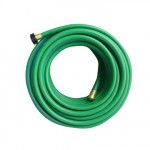 |  | More Information
Garden HoseGarden hoses should be placed in the red lidded general waste bin. Garden hoses are not recyclable and should never be placed in your yellow lidded recycling bin. They can become wrapped around the machinery and cause issues at the Materials Recovery Facility. |
| Garden Waste | 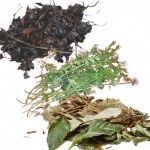 |  | More Information
Garden WasteGarden waste such as leaves, flowers, offcuts, grass clippings and small braches can be placed directly in the green lidded garden organics bin. |
| Gas Bottles | 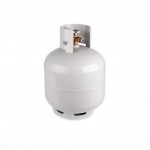 |  | More Information
Gas BottlesGas bottles contain dangerous liquids which can create safety issues so they should be returned to the Resource Recovery Centre, for more information on the Centre including location and opening hours click here. Gas bottles should never be placed in the yellow lidded recycling bin. |
| Glad Wrap |  |  | More Information
Glad WrapGlad wrap and other soft plastics such as sandwich bags should be placed directly into your red lidded waste bin. Placing soft plastics such as plastic bags and wrap into the recycling bin can also cause issues in the Materials Recovery Facility as they wrap around machinery and cause blockages. |
| Glass (excluding bottles & jars) | 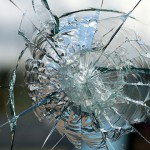 |  | More Information
GlassGlass such as drinking glasses, window panes, pyrex, plate glass etc should be placed into the red lidded general waste bin or taken to the Resource Recovery Centre. These forms of glass are hardened and contain different materials than glass bottles and jars so cannot be placed in the yellow lidded recycling bin. |
| Glass Bottles and Jars | 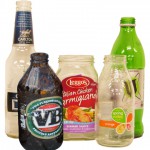 |  | More Information
Glass Bottles and JarsEmpty glass bottles and jars can be placed directly into the yellow lidded recycling bin. Glass bottles and jars can be recycled via your regular kerbside collection. Other types of glass including drinking glasses, ceramics, plate glass and pyrex cannot be placed in your yellow recycling bin and should instead be placed in your red general waste bin. Preparing glass bottles and jars for recycling:
|
| Glasses | 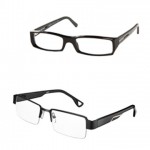 |  | More Information
Prescription GlassesPrescription glasses are expensive and often need to be updated regularly. Unwanted glasses can be donated to a variety of charities and they are then sent to communities where they can make a huge difference to people living in less fortunate circumstances. To donate your glasses talk to your local optometrist or service club (Rotary, Lions Clubs etc) who may collect them or post them for free in a padded bag to: PersonalEYES Donate Glasses Reply Paid 301 Parramatta NSW 2124 http://www.personaleyes.com.au/donate-glasses |
| Grass Clippings | 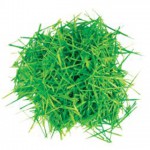 |  | More Information
Garden WasteGarden waste such as grass clippings should be placed directly in the green lidded garden organics bin. |
| Greeting Cards |  |  | More Information
Greeting CardsGift cards made of paper or cardboard materials can be disposed of in the yellow lidded recycle bin. |
| Hoses |  |  | More Information
Garden HoseGarden hoses should be placed in the red lidded general waste bin. Garden hoses are not recyclable and should never be placed in your yellow lidded recycling bin. They can become wrapped around the machinery and cause issues at the Materials Recovery Facility. |
| Household Chemicals | 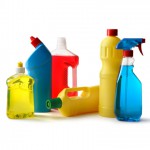 |  | More Information
Household Chemicals and CleanersHousehold Chemicals are considered hazardous waste and can cause danger if they are placed in any of the domestic (kerbside) bins. These and other wastes are accepted at the Chemical CleanOut held once a year at Council's Works Depot, normally in April. For more information or advice regarding chemicals and problem wastes, please call the EPA Environment Line on 131 555 or visit www.epa.nsw.gov.au. Some agricultural and veterinary chemicals may be eligible for ChemClear. Call 1800 008 182 or visit www.chemclear.com.au for details. |
| Hypodermic Needles | 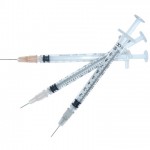 |  | More Information
Hypodermic NeedlesHypodermic needles are considered a hazardous waste and can be extremely dangerous if placed in any domestic bins. If you have a medical condition that requires their use ensure that you dispose of them correctly. Talk to your local pharmacy or visit www.safesharps.org.au to find a disposal site near you. |
| Ice Cream Containers | 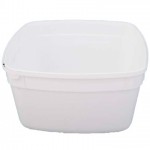 |  | More Information
Ice Cream ContainersIce cream containers and lids can be placed directly into the yellow lidded recycle bin. Like all recyclables it is best for the materials to be as clean as possible. To avoid wasting water it is best to wash recyclable items in old washing up water after finishing your dishes. |
| Juice Cartons |  |  | More Information
Juice CartonsJuice cartons can be placed directly into the yellow lidded recycling bin. |
| Junk Mail | 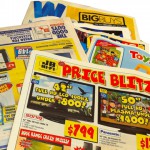 |  | More Information
Junk MailJunk mail can be placed directly into the yellow lidded recycling bin. |
| Kitty Litter |  |  | More Information
Kitty Litter and Animal WasteKitty Litter should be disposed of directly into the red lidded general waste bin. |
| Leaves | 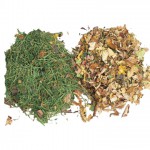 |  | More Information
Garden WasteGarden waste such as leaves can be placed directly in the green lidded garden organics bin. |
| Magazines |  |  | More Information
MagazinesMagazines are recyclable and can be placed straight into your yellow lidded recycling bin. |
| Mattresses | 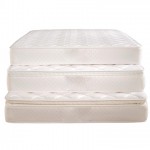 |  | More Information
MattressesOld mattresses contain many components such as scrap metal and wood which can be reused. Mattresses can be disposed of at the Resource Recovery Centre where they will then be sent away for recovery of reusable materials. |
| Meat Trays (Polystyrene Foam) | 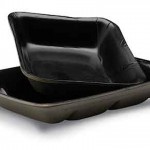 |  | More Information
Polystyrene Foam Meat TraysFoam or Expanded Polystyrene (EPS) materials cannot be collected in the Council recycling service through the yellow lidded bin and should instead be placed in the red lidded general waste bin. |
| Meat Trays (Rigid Plastic) | 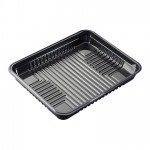 |  | More Information
Plastic Meat TraysRigid Plastic meat trays (those which are not foam and cannot be ‘squished’) are recyclable and can be placed into your yellow lidded recycling bin. For health and safety reasons and to ensure recycling isn’t contaminated the containers need to be as clean as possible. To prevent wasting water it is best to wash up containers in old washing up water after finishing the dishes. |
| Nappies |  |  | More Information
NappiesNappies and other sanitary items should be placed directly into your red lidded waste bin. |
| Needles |  |  | More Information
Hypodermic NeedlesHypodermic needles are considered a hazardous waste and can be extremely dangerous if placed in any domestic bins. If you have a medical condition that requires their use ensure that you dispose of them correctly. Talk to your local pharmacy or visit www.safesharps.org.au to find a disposal site near you. |
| Newspapers |  |  | More Information
NewspaperNewspaper is recyclable and can be placed directly into your yellow lidded recycling bin. |
| Paint Tins |  | More Information
Paint TinsPaint tins whether empty, dry or still containing liquid paint should never be placed in your domestic bins. Paint tins can be returned to the Resource Recovery Centre. | |
| Paper | 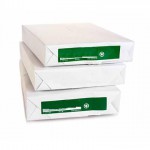 |  | More Information
Paper ProductsPaper is recyclable and can be placed directly into your yellow lidded recycling bin. |
| Pizza Boxes |  |  | More Information
Pizza BoxesPizza boxes are made of cardboard and can be recycled in the yellow lidded bin. In the past pizza boxes in the recycling was discouraged, however advancements in technology mean that this has changed and you can recycle pizza boxes even if they contain an oily residue. Simply ensure that you eat all the pizza and do not leave any scraps in the box. |
| Plant Cuttings | 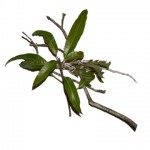 |  | More Information
Garden WastePlant cuttings (less than 15cms in diameter) can be placed into your green lidded garden organics bin. |
| Plastic Bags | 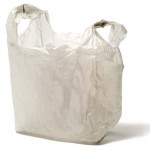 |  | More Information
Plastic BagsCurrently Australian’s use more than 10 million single use plastic bags per day. Plastic bags are not recyclable through the yellow bin system. In fact placing soft plastics such as plastic bags and wrap into the recycling bin can also cause issues in the Materials Recovery Facility as they wrap around machinery and cause blockages. However they can be taken back to the supermarket and placed in the special plastic bag bin usually located at the front of the store. If you need to get rid of plastic bags at home you can also place them in your red lidded bin. If possible it is best to reduce plastic bag use by ensuring that you always take reusable bags with you to the supermarket. |
| Plastic Wrappers |  |  | More Information
Plastic WrappersSoft plastic wrappers should be placed directly into your red lidded waste bin. Soft plastics such as plastic bags and wrappers, can often have a plastic identification code on them that closely resembles the recycling symbol; however they cannot be recycled through the yellow lidded bin in this area regardless of the symbol. Placing soft plastics such as plastic bags and wrap into the recycling bin can also cause issues in the Materials Recovery Facility as they wrap around machinery and cause blockages. |
| Polystyrene | 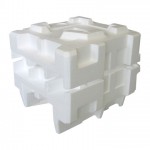 |  | More Information
Bulky PolystyreneMost bulky polystyrene (officially called Expanded Polystyrene) used for packaging or fruit boxes can be bought into Council’s Resource Recovery Centre for free. It must be clean, not waxed and all sticky tape must be removed. The polystyrene is compressed on-site and sold for use in new items such as outdoor furniture. For more information about the centre including location and opening hours visit our Resource Recovery Centre page. |
| Pyrex | 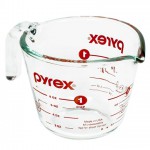 |  | More Information
PyrexPyrex containers and cookware are a specialised harden glass that contains different elements then the glass found in bottles and jars. Because of this Pyrex products cannot be recycled and should be placed in the red lidded general waste bin. |
| Scrap Metal | 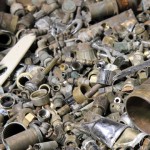 |  | More Information
Scrap MetalScrap metal should not be placed into any of the kerbside domestic bins. Scrap metal items can be returned to the Resource Recovery Centre. For more information on the Centre including location and opening hours click here. |
| Spectacles |  |  | More Information
SpectaclesPrescription glasses are expensive and often need to be updated regularly. Unwanted glasses can be donated to a variety of charities and they are then sent to communities where they can make a huge difference to people living in less fortunate circumstances. To donate your glasses talk to your local optometrist or service club (Rotary, Lions Clubs etc) who may collect them or post them for free in a padded bag to: PersonalEYES Donate Glasses Reply Paid 301 Parramatta NSW 2124 http://www.personaleyes.com.au/donate-glasses |
| Steel |  | More Information
Scrap SteelScrap steel should not be placed into any of the kerbside domestic bins. Scrap steel items can be returned to the Resource Recovery Centre. For more information on the Centre including location and opening hours click here. | |
| Steel Cans | 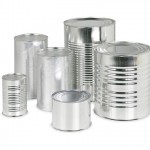 |  | More Information
Steel CansEmpty steel cans are recyclable and can be placed directly into your yellow lidded recycling bin. Aluminium can be recycled infinitely without any loss of quality. More importantly recycling steel saves 75% of the energy it would take to make a can from scratch. So ensure that you always place steel cans into the recycling bin and remember if you are out and about and there are no public recycling bins, collect your cans and take them home to recycle. |
| Styrofoam |  |  | More Information
Bulky PolystyreneMost bulky polystyrene (officially called Expanded Polystyrene) used for packaging or fruit boxes can be bought into Council’s Resource Recovery Centre for free. It must be clean, not waxed and all sticky tape must be removed. The polystyrene is compressed on-site and sold for use in new items such as outdoor furniture. For more information about the centre including location and opening hours visit our Resource Recovery Centre page. |
| Syringes |  |  | More Information
SyringesSyringes are considered a hazardous waste and can be extremely dangerous if placed in any domestic bins. If you have a medical condition that requires their use ensure that you dispose of them correctly. Talk to your local pharmacy or visit www.safesharps.org.au to find a disposal site near you. |
| Televisions | 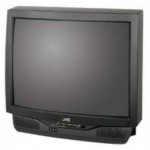 |  | More Information
Televisions and Electronic WasteTelevisions and other E-waste should not be placed in domestic (kerbside) bins. Televisions and other electronic waste is Australia’s fastest growing form of waste. Computers, televisions, mobile phones and other forms of e-waste contain both toxic/hazardous materials as well as non- renewable resources such as tin, gold, nickel, zinc and copper. It is therefore important that they are disposed of correctly so that valuable resources are not lost. Under the national television and computer recycling scheme every company that makes or imports computers into Australia is required to pay for the end of life recycling of these products. As part of this scheme you can drop off computers at the Resource Recovery Centre, however you must follow the below guidelines. Dropping eWaste at the RRC: 1. Free Disposal – Conditions: Domestic quantities only – limit 5 major items. More than 5 items require prior approval by RRC management. Items able to be dropped off for free include:
|
| Tree Prunings |  |  | More Information
Garden WasteTree prunings up to 15cm in diameter can be placed in the green lidded organics bin. |
| Tyres | 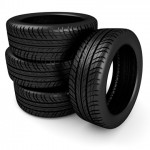 |  | More Information
TyresTyres should never be placed in any of your kerbside domestic bins. Waste tyres are a major environmental concern with approximately 18 million waste tyres generated in Australia each year. Tyres are a valuable source of rubber that can be re-used to prevent litter, avoid fire hazards, save energy and prevent against environmental contamination. Waste Tyres can be dropped off at the following locations:Greater Taree Residents
Great Lakes Residents
Gloucester Residents
|
| Waxed Cardboard |  |  | More Information
Waxed CardboardWaxed cardboard boxes are often used for transporting fresh produce. Because of the wax coating they are unsuitable for recycling through the yellow bin system. Waxed cardboard should be placed in the red general waste bin. Alternatively if you have a compost bin at home it can also be composted. |
| White Goods | 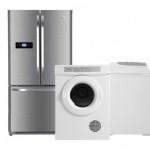 |  | More Information
WhitegoodsWhitegoods should be disposed of at the Resource Recovery Centre. For more information on the Centre including location and opening hours click here. |
What Goes Where?
ABCDEFGHIJKLMNOPQRSTUVWXYZAll ABCDEFGHIJKLMNOPQRSTUVWXYZAll
